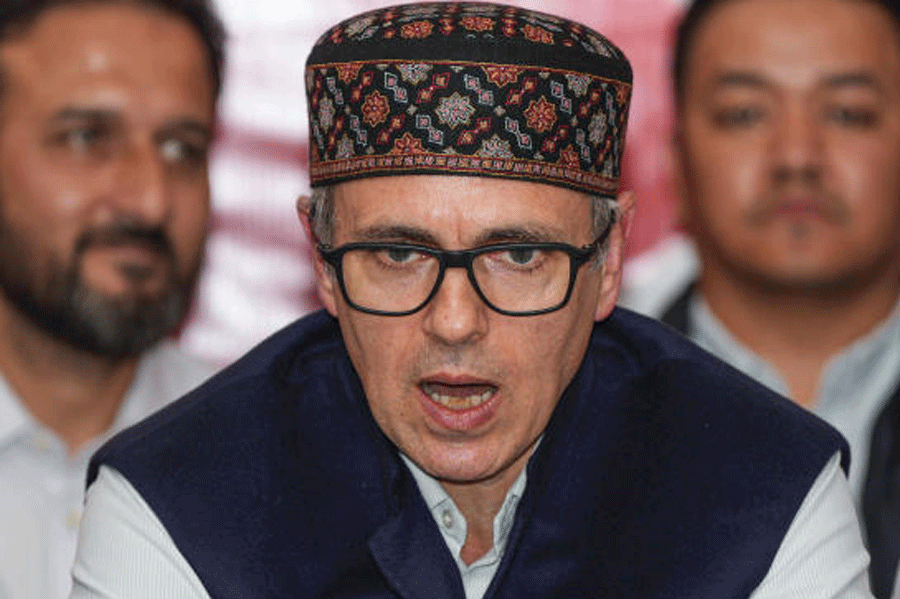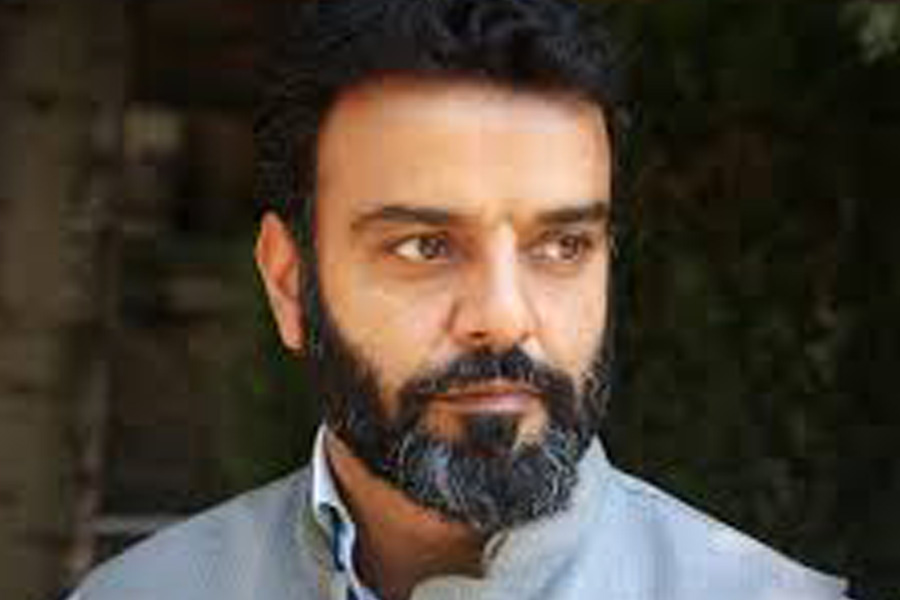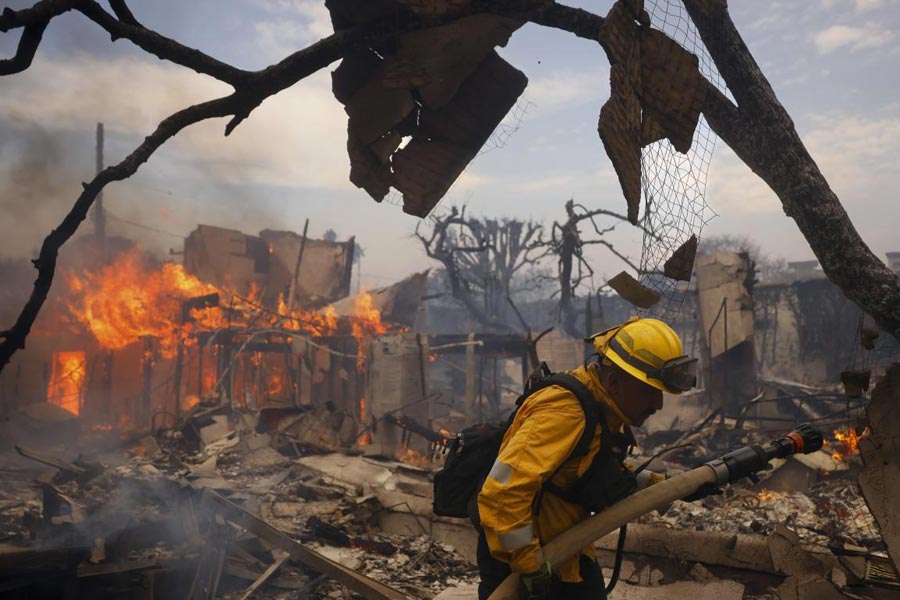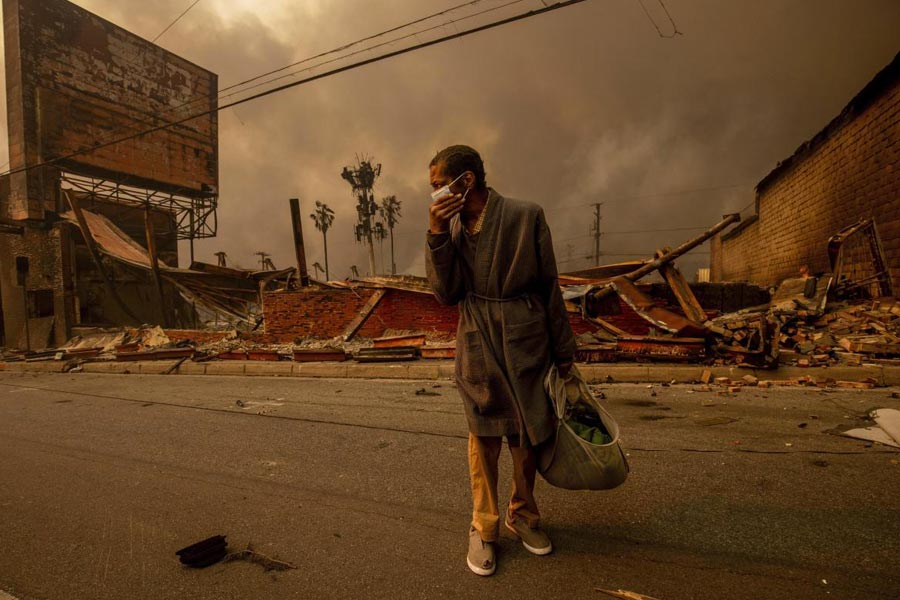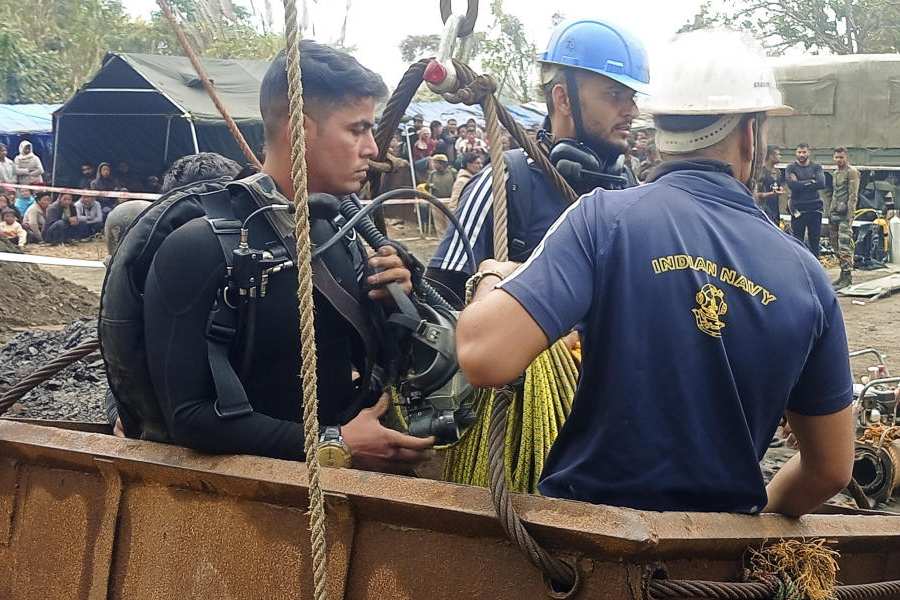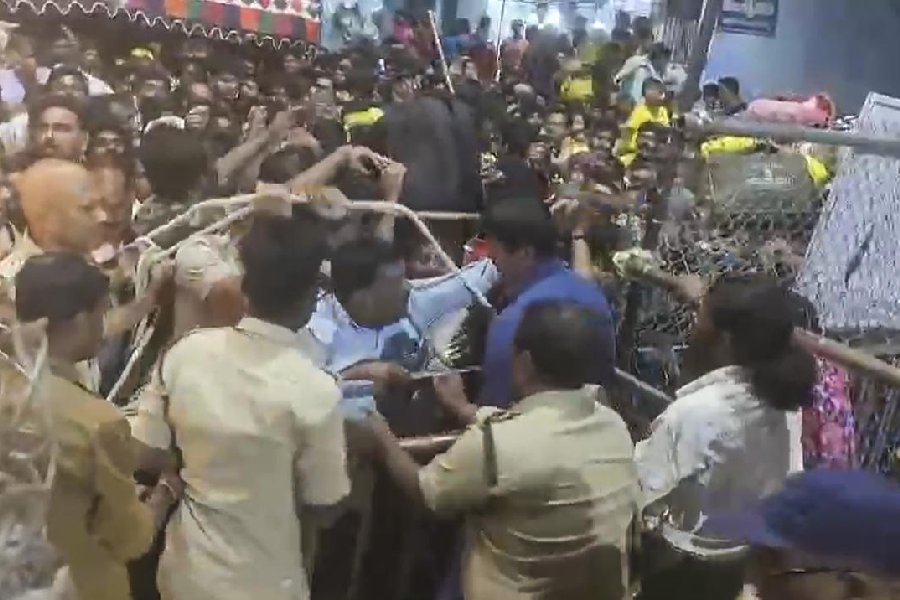Former chief minister Omar Abdullah on Saturday said the Jammu and Kashmir government was making all luxuries available to lieutenant governor Manoj Sinha while the common people were struggling for basic amenities such as power.
Omar’s tirade against Sinha comes at a time the Union Territory is facing the worst power crisis in years. Most Kashmiris have to endure up to 16 hours of power cuts amid freezing cold, leading to widespread anger and protests against the administration. The politicians have revived calls for handing over the Centre’s power projects to the Jammu and Kashmir government to allow people a breather.
The unprecedented power cuts follow the government’s massive drive to install smart meters across the Union Territory to minimise power theft. Sinha had promised round-the-clock power supply in metered areas.
In August, Jammu and Kashmir witnessed protests, some of which turned violent, against the installation of smart meters but the government did not budge.
With the worsening of the power crisis, Omar on Saturday claimed the government has issued an order that does not require it to float tenders to make purchases for the “luxury” of the Raj Bhavan but committees need to be set up when it comes to addressing the power crisis here.
“After August 5 (2019), people were told not to worry, everything will be fine. The Centre asked us to give them time and the BJP promised nothing but smiles,” Omar told a gathering in Bandipora.
“Governor sahab, at least make arrangements for power. You talk about double engine (government) everywhere you go but we do not find even a single engine here. If the Raj Bhavan has to purchase anything, no tenders are needed. There was an order last time, which said there should be no restrictions on governor sahab’s luxuries and things for him should be purchased immediately without issuing tenders.”
Omar said when it comes to electricity supply, the lieutenant governor said a committee has been set up to make power purchases. He asked the Centre to “return” its power projects to Jammu and Kashmir residents. People here have long complained that the Centre was allegedly stealing their power to supply to some other parts of the country.
“They (central government) took advantage of our helplessness. We could not construct projects (because of the lack of resources). But what is stopping you from giving our projects back to us (as Jammu and Kashmir is now run directly by the Centre)? So many committees, working groups and round tables have said these projects should be returned to Jammu and Kashmir. Even the Prime Minister himself said that he wants to bridge the distance between the hearts of people here and Delhi,” Omar said.
“Why don’t you make a beginning and return our power projects so that we don’t have to beg for power before you?” he added.
Kashmiris believe they suffer losses because of the Indus Water Treaty under which Delhi gave up its claim on wholesome water use of three western rivers — Jhelum, Chenab and Indus (all flowing from Jammu and Kashmir) to Pakistan in lieu of three eastern rivers — Satluj, Beas and Ravi.
The treaty prevents the storage of water by disallowing big dams because of which power generation falls steeply during winters.
Officials said the power demand in Jammu and Kashmir has increased to 3,200MW but the in-house generation availability was only 1,350MWs during the peak summer season. Jammu and Kashmir’s installed power capacity is 3,500MW.
Principal secretary in the power development department, H. Rajesh Prasad, told reporters on Friday that generation has fallen to a mere 150MW because of low water level. He claimed the lieutenant general approved the purchase of 2,400MW to meet the shortage.

